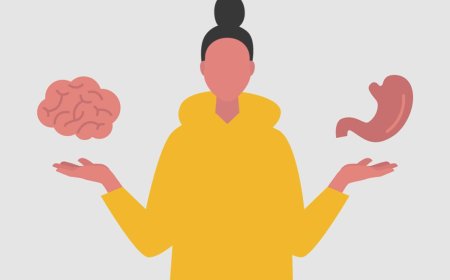How to Spot the 19 Signs of Thyroid Problems Before It’s Too Late
If you recognize several of these signs in yourself or a loved one, consider scheduling a thyroid function test and discussing your concerns with a healthcare professional.

The thyroid gland, though small, has a monumental impact on your bodys daily functions. It regulates how fast your body uses energy, how it responds to hormones, and how organs work together. If your thyroid stops producing the right amount of hormones, the effects ripple through your entire system. Learning to recognize the 19 signs of thyroid problems can help you catch potential issues early and avoid more serious complications down the line.
Why Early Detection of Thyroid Problems Is So Important
Thyroid disorders often develop gradually, with symptoms that seem unrelated or easy to dismiss. Ignoring them can lead to dangerous consequences like heart problems, infertility, mental health issues, or even life-threatening crises such as a thyroid storm or myxedema coma. Being aware of the early warning signs ensures timely diagnosis and treatment, improving your long-term health outcomes.
What Are the 19 Signs of Thyroid Problems?
Recognizing these symptoms allows you to take control of your health. Below are the most common and clinically significant signs to watch for:
1. Unexplained Tiredness
If youre constantly exhausted even after adequate sleep and rest, this is often one of the earliest and most overlooked indicators of hypothyroidism.
2. Unintentional Weight Gain or Loss
Sudden and unexplained changes in body weight can indicate a thyroid imbalance.
-
Weight gain is a classic symptom of hypothyroidism.
-
Weight loss typically points to hyperthyroidism.
3. Hair Thinning or Excessive Hair Loss
When your hair starts falling out in clumps or becomes noticeably thinner, it could be linked to hormone disruptions caused by thyroid problems.
4. Mood Disorders
Emotional symptoms are just as telling as physical ones.
-
Hypothyroidism is associated with depression, fatigue, and apathy.
-
Hyperthyroidism may cause anxiety, nervousness, or irritability.
5. Unusual Temperature Sensitivity
A marked sensitivity to cold or excessive heat is one of the 19 signs of thyroid problems.
-
Feeling constantly chilly may suggest hypothyroidism.
-
Overheating and sweating might indicate hyperthyroidism.
6. Skin Problems
Dry, pale, or itchy skin can result from decreased blood circulation and slowed metabolism caused by an underactive thyroid.
7. Digestive Irregularities
Your metabolism and digestion slow down or speed up with thyroid hormone levels.
-
Constipation is common with hypothyroidism.
-
Diarrhea or frequent bowel movements happen with hyperthyroidism.
8. Concentration and Memory Problems
Many people with thyroid issues experience forgetfulness, mental fog, and difficulty focusing on daily tasks.
9. Swelling at the Base of the Neck
An enlarged thyroid, known as a goiter, may present as visible swelling or a sensation of tightness in the throat.
10. Menstrual and Fertility Changes
Disruptions in menstrual patterns or difficulty conceiving can be hormonal side effects of thyroid dysfunction.
-
Heavy, prolonged, or irregular periods are seen in hypothyroidism.
-
Lighter or absent cycles suggest hyperthyroidism.
11. Muscle Cramps or Weakness
Low or high thyroid hormone levels interfere with muscle function, often resulting in aching, stiffness, or unexpected muscle fatigue.
12. Heart Rate Abnormalities
Since thyroid hormones regulate heart rate:
-
A fast, irregular pulse may occur with hyperthyroidism.
-
A slow heartbeat can accompany hypothyroidism.
13. Persistent Hoarseness
Changes in your voice, including hoarseness or loss of vocal strength, could stem from thyroid gland enlargement or inflammation.
14. Puffy Facial Features
Fluid retention and slowed circulation caused by hypothyroidism often lead to noticeable puffiness around the eyes, lips, and cheeks.
15. Blood Pressure Issues
Blood pressure problems are another of the 19 signs of thyroid problems.
-
Elevated blood pressure frequently occurs in hyperthyroidism.
-
Lower-than-normal blood pressure is linked to hypothyroidism.
16. Insomnia or Excessive Sleepiness
Thyroid imbalances disrupt normal sleep patterns.
-
Hypothyroidism makes you unusually sleepy.
-
Hyperthyroidism causes difficulty falling or staying asleep.
17. Appetite Fluctuations
An increased or decreased appetite can indicate thyroid issues.
-
Hyperthyroidism may cause constant hunger.
-
Hypothyroidism often diminishes appetite.
18. Weak or Brittle Nails
Like hair and skin, nails reflect thyroid health. Weak, brittle, or ridged nails could signal an underlying hormonal imbalance.
19. Numbness or Tingling in Hands and Feet
Over time, untreated thyroid problems may damage nerves, leading to numbness, tingling, or a pins-and-needles sensation in the extremities.
Whos at Risk for Thyroid Problems?
Certain factors increase your likelihood of developing thyroid disorders, including:
-
Family history of thyroid disease
-
Existing autoimmune conditions
-
Radiation exposure to the head or neck
-
Being female (higher prevalence)
-
Being over the age of 50
If you fall into any of these categories, its wise to pay attention to the 19 signs of thyroid problems.
How Are Thyroid Problems Diagnosed?
If you suspect an issue, a doctor will likely order blood tests to measure levels of:
-
TSH (Thyroid-Stimulating Hormone)
-
T3 (Triiodothyronine)
-
T4 (Thyroxine)
Additional tests like ultrasound, thyroid antibody panels, or biopsy may follow if nodules or goiters are detected.
Treatment Options for Thyroid Disorders
The treatment youll need depends on the type and severity of your thyroid condition:
-
Hypothyroidism: Typically managed with daily synthetic thyroid hormone (levothyroxine).
-
Hyperthyroidism: Treated using antithyroid medications, radioactive iodine, or surgery.
-
Goiters and Nodules: May require monitoring, biopsy, or surgical removal based on their nature.
Lifestyle modifications, such as improved nutrition and stress management, can also support thyroid health.
FAQs About 19 Signs of Thyroid Problems
Q1: How quickly can thyroid symptoms appear?
Some symptoms develop gradually over months, while others, like rapid heart rate or weight loss in hyperthyroidism, may appear suddenly.
Q2: Can thyroid issues affect pregnancy?
Yes, untreated thyroid problems can cause miscarriage, premature delivery, and developmental problems in babies.
Q3: Is thyroid disease hereditary?
Yes. A family history of thyroid disease increases your risk, especially for autoimmune thyroid conditions.
Q4: Are thyroid symptoms the same in men and women?
While the core symptoms are similar, women are more likely to experience menstrual and fertility issues as part of the 19 signs of thyroid problems.
Q5: Can lifestyle changes alone cure thyroid disease?
No. While a balanced diet, regular exercise, and stress reduction can support thyroid health, most conditions require medical treatment.
Final Thoughts
Being aware of the 19 signs of thyroid problems can help you act before minor issues turn into serious health risks. Since thyroid symptoms often mimic other health conditions or general fatigue, its important to consider the overall pattern rather than isolated symptoms.








































